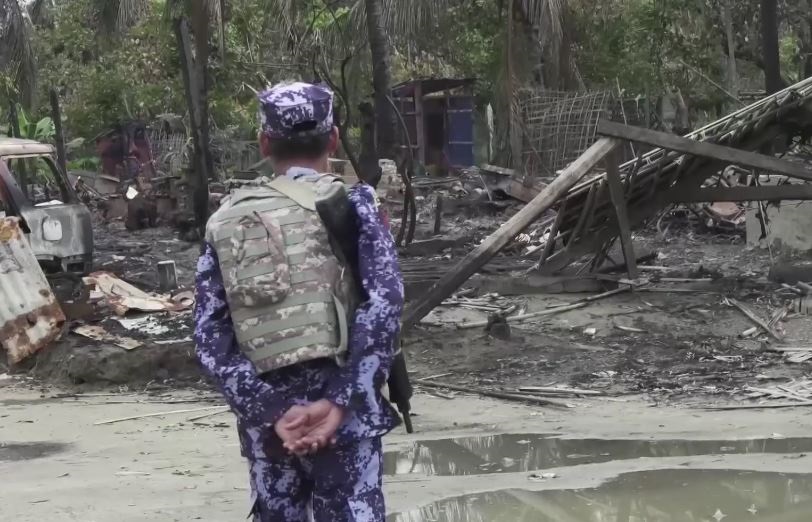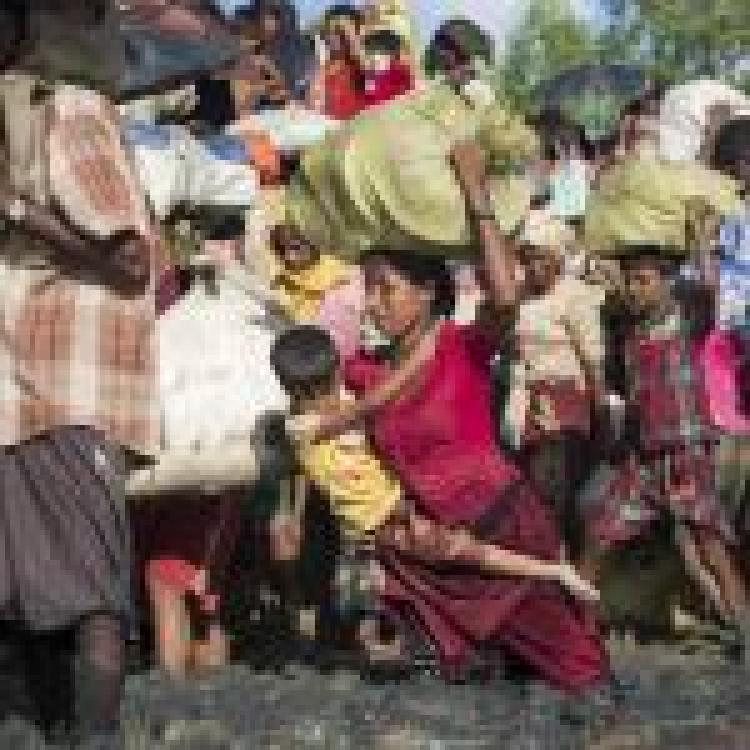
File photograph: VOA
Amnesty International has found Myanmar’s forces are again shelling villages and blocking civilians from accessing food and humanitarian assistance in its battle against the Arakan Army, who are fighting for more autonomy in the Rakhine state.
The human rights organisation said it had gathered evidence security forces have used vague and repressive laws to detain and prosecute civilians.
Amnesty spoke to civilians affected by the fighting, local activists and humanitarian workers in order to understand the effects of the conflict. One villager said Myanmar’s soldiers and police had restricted the amount of rice people were allowed to bring into the settlement despite already suffering from a shortage of food.
Myanmar’s authorities also made it increasingly difficult for aid groups to work in the region. On January 10, all UN agencies and international organisations except the Red Cross and the World Food Programme, were banned.
Tirana Hassan, Amnesty’s director of crisis response said that “these latest operations are yet another reminder that the Myanmar military operates without any regard for human rights”.
The crackdown on the ethnic Rakhine group intensified after the rebels attacked a police post in January which left 13 police officers dead. The Myanmar military retaliated by deploying more troops into the area.
The United Nations says by January 28, 5,200 people have been forced to leave their homes due to the ongoing violence.
The human rights group also found the troop build-up in Rakhine included the 99th Light Infantry Division, a unit that Amnesty and other groups had implicated in atrocities committed against the Rohingya in 2017.
Hassan added, “as we’ve seen time and again, the military’s priority is not to protect people in the crossfire but rather to hide their abuses from the international community”.
Myanmar’s authorities have not responded to Amnesty International’s claims
See more from Al Jazeera here and Amnesty International here.



